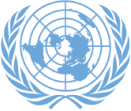We join with the rest of the international community in offering our heartfelt sympathies to the people and Government of Algeria and, indeed, to all humankind. We have seen yet another attack on humanity.
We also recognize the statement made by the Honourable Attorney General and Minister of Legal Affairs of the Bahamas on behalf of the Caribbean Community.
The delegation of the Republic of Guyana, which includes three children, is delighted to participate in this high-level meeting to review the progress of our collective efforts to create a world fit for children. On behalf of the Government and people of Guyana, I extend special greetings to all child representatives and commend them for their invaluable contribution to this year’s review process.
The care, protection and development of all our children, in whom lies the future of humanity, are objectives that demand pride of place on our national and global agendas. Guyana stands committed to those objectives. We welcome the opportunity to share our experiences in implementation and to exchange ideas on the ongoing process of transforming our world into one fit for children.
Since the 2002 special session on children, the Government of Guyana has taken several initiatives to enhance the well-being of our country’s children and to ensure that their rights are protected. We have succeeded in reducing child mortality, while increasing the immunization of children against vaccine-preventable diseases; immunization currently stands at 92 per cent. Success has been achieved in preventing mother-to-child transmission of HIV/AIDS, even as efforts have been enhanced in the provision and distribution, free of charge, of locally produced anti-retroviral drugs to those infected with HIV/AIDS. There are ongoing efforts to provide quality education to children in Guyana and, while we have achieved universal primary education, concentration is now focused on the attainment of universal secondary education and ensuring the completion of that grade of education by boys and girls alike.
The principle of the best interests of the child guides Guyana’s jurisprudence as it relates to legislation on children. To date, we have enshrined in our Constitution the Convention on the Rights of the Child, which provides the framework for promoting healthy lives, combating HIV/AIDS, providing quality education for all and protecting children against abuse, exploitation and violence.
It is disheartening to note the level of violence in many societies globally. For our part, we have embarked on a campaign to stamp out violence in our society, particularly violence against women and children. That matter is currently the subject of extensive national consultations on the basis of proposals by the Government to reform the law, strengthen protection and improve support and services to victims, while upholding the right of the defendant to a fair trial. Earlier this year, a Child Protection Service was established. The Government of Guyana continues to actively collaborate with UNICEF under the country programme of cooperation 2006-2010 to tackle child protection and welfare issues.
Implementing a world fit for children has not been without challenges and setbacks, some of which are greater than those occasioned by financial and infrastructural constraints. Children across the world are at risk of further suffering on account of the global increase in food and fuel prices and in the cost of living. With internal and domestic conflicts and wars among countries, the innocence and rights of childhood are stolen. More needs to be done to address the scourge of poverty. More needs to be done to protect children from exposure to conflict situations, as well as to provide for their rehabilitation and reintegration into post-conflict societies.
Preserving the natural environment for posterity is an important dimension of creating a world fit for children. As reports by the Nobel Prize-winning Intergovernmental Panel on Climate Change make clear, human actions are impacting the kind of world our children will inherit. Renowned economist Nicholas Stern has highlighted that those who will suffer most are the developing countries, which have contributed the least to greenhouse gas emissions.
Vulnerability can be considered in terms of geographic location and economy, as well as age. In the developed and developing countries alike, it is the children who are most vulnerable. Where climate change leads to disasters, destruction and death, children suffer the most. Many become orphans; many become disabled; many become displaced. Their health is affected, their education is affected, and their entire life is turned upside down.
Global warming and consequent climate change must be addressed. Guyana has taken a leadership role in that effort. Our pristine rainforest does much service to the world in terms of carbon sequestration. The post-Kyoto Protocol framework should make provisions for standing rainforests with mechanisms for rewarding countries for conserving those rainforests.
From this rostrum, we appeal to world leaders, and indeed all adults, to do everything they can to avoid the road to self-destruction and move our planet onto a path of recovery through massive reductions in greenhouse gas emissions. It will make little sense if we manage to eradicate violence against children on one day and they drown in a mighty flood or starve in a drought or famine on the next. We therefore stress the need for a coherent and comprehensive approach to issues concerning children.
Guyana looks forward to sharing further insights on its national experiences in the round table sessions in order to contribute to an elaboration of best practices with a view to establishing and sustaining a world fit for children.


